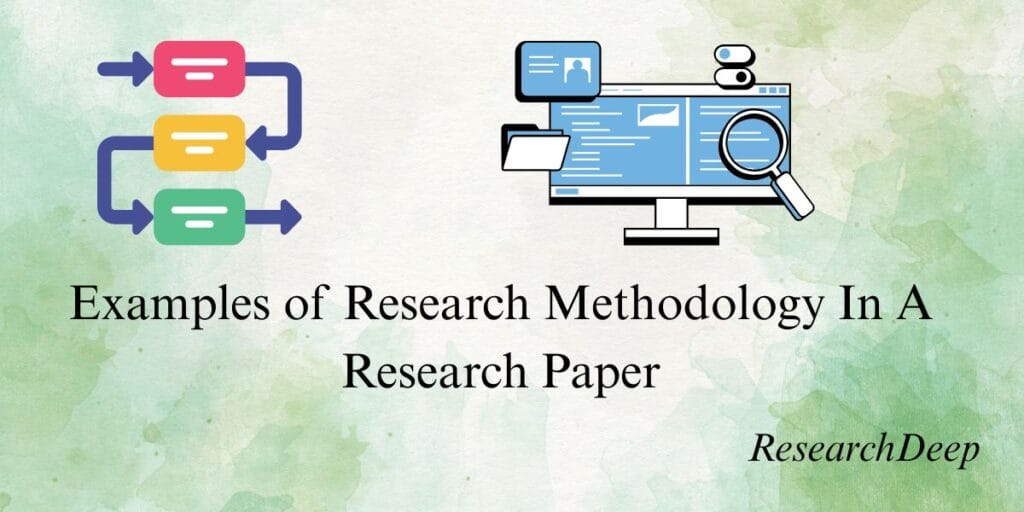| Author | Definition | Year |
|---|---|---|
| C.R. Kothari | “Research methodology is a way to systematically solve the research problem by logically adopting methods.” | 2004 |
| Creswell, J.W. | “Methodology refers to the overall approach to the research process, from theoretical underpinning to collection and analysis.” | 2014 |
| Saunders et al. | “Research methodology is the theory of how research should be undertaken, including philosophical and theoretical assumptions.” | 2019 |
| Rajasekar et al. | “A coherent set of methods, rules, and procedures to structure the research and analyze data efficiently.” | 2013 |
| Grover & Glazier | “A structured framework that minimizes bias and ensures the validity of results.” | 2016 |
| Kerlinger | “Methodology is the systematic, theoretical analysis of the methods applied to a field of study.” | 1986 |
| Leedy & Ormrod | “The general approach a researcher takes in carrying out the research project.” | 2015 |
| Silverman | “A methodology explains the logic behind the use of particular research techniques.” | 2016 |
Interpreting Definitions of Research Methodology
Although authors differ in phrasing, they collectively emphasize three core aspects:
1. Philosophical Foundations
Methodology connects the researcher’s worldview (positivist, interpretivist, or realist) to data-collection methods (Creswell, 2014).
2. Research Approach
Kothari (2004) defines the approach as the overarching strategy that influences the choice of data collection methods, encompassing qualitative, quantitative, and mixed-methods approaches.
3. Research Design
According to Saunders et al. (2019), the significance of research design lies in its critical role in mapping the structure and order of the entire research process, thereby ensuring alignment with the research questions.
Table 2: Types of Research Methodologies
| Type | Characteristics | Examples | Purpose |
|---|---|---|---|
| Qualitative | Explores experiences, meanings, and contexts using non-numerical data. | Interviews, case studies, focus groups | To explore complex human experiences in depth. |
| Quantitative | Relies on measurable data and statistical analysis. | Surveys, experiments | To test hypotheses and relationships between variables. |
| Mixed Methods | Integrates qualitative and quantitative data. | Sequential or concurrent studies | To obtain both depth and breadth of understanding. |
Source: ResearchGate
Importance of Research Methodology
A sound methodology ensures that research outcomes are credible and replicable.
Grover and Glazier (2016) stress that “the strength of research lies in the clarity of its methodology.”
Key reasons for its importance include:
- It provides a structured framework for inquiry.
- It ensures the validity and reliability of results.
- It aligns research with ethical and philosophical standards.
Steps in Research Methodology (According to Various Authors)
- Identify the Research Problem – Kothari (2004) asserts this is the foundation of any study; an unclear problem leads to unfocused research.
2. Review the Literature – Creswell (2014) emphasizes the importance of synthesizing prior studies to ground the new research in existing knowledge. (Recommended Read: How To Write A Lit Review For A Research Paper)
3. Select a Research Method – Rajasekar et al. (2013) advise choosing qualitative, quantitative, or mixed methods based on the research question.
4. Collect Data – Saunders et al. (2019) highlight aligning tools (surveys, interviews, observations) with the philosophical stance. (Recommended Read: Definition Of Data Collection By Authors)
5. Analyze Data – Both Kothari (2004) and Creswell (2014) advocate for the use of both statistical and thematic analysis to facilitate meaningful interpretation.
📘 Example:
A researcher studying the impact of social media on student well-being might combine survey data (quantitative) with interviews (qualitative) to uncover both patterns and lived experiences.
Common Pitfalls in Research Methodology
| Challenge | How to Address It |
|---|---|
| Lack of clear objectives | Define specific, measurable goals aligned with methodology. |
| Inconsistent data collection | Use standardized instruments and maintain procedural consistency. |
| Biased analysis | Follow transparent, replicable analysis protocols and peer validation. |
FAQs
What is research methodology according to Creswell?
Creswell (2014) defines it as the philosophical foundation that connects theory with practical research processes.
Why are author definitions important?
Each author reflects a different philosophical stance — positivist, interpretivist, or realist — offering scholars flexibility to choose the most aligned methodology.
Why is it essential to align research methodology with philosophical assumptions?
Aligning methodology with philosophical assumptions ensures consistency in the approach, which in turn influences how data is interpreted and validated.
Conclusion
In conclusion, research methodology remains the essential pillar of academic investigation. Whether viewed as a philosophical stance (Creswell 2014) or a systematic process (Kothari 2004), it provides the structure that transforms an idea into verifiable knowledge.
The comparison of author definitions reveals that while terminology evolves, the essence of methodology remains constant — it bridges theory, method, and analysis to ensure meaningful and credible outcomes.
Key Takeaway:
Research methodology is the backbone of every academic study. It links philosophical assumptions with systematic methods, ensuring that research outcomes are valid, reliable, and meaningful.
Research methodology is the backbone of every academic study. It links philosophical assumptions with systematic methods, ensuring that research outcomes are valid, reliable, and meaningful.
References
American Psychological Association. (2020). Publication manual of the American Psychological Association (7th ed.). APA Publishing.
Booth, W. C., Colomb, G. G., & Williams, J. M. (2016). The craft of research (4th ed.). University of Chicago Press.
Creswell, J. W. (2014). Research design: Qualitative, quantitative, and mixed methods approaches (4th ed.). Sage.
Creswell, J. W., & Creswell, J. D. (2018). Research design (5th ed.). Sage.
Grover, R., & Glazier, J. D. (2016). A conceptual framework for theory building in library and information science. Library Quarterly, 86(1), 25–45.
Kothari, C. R. (2004). Research methodology: Methods and techniques (2nd ed.). New Age International.
Leedy, P. D., & Ormrod, J. E. (2015). Practical research: Planning and design (11th ed.). Pearson.
Rajasekar, S., Philominathan, P., & Chinnathambi, V. (2013). Research methodology. Bharathidasan University.
Saunders, M., Lewis, P., & Thornhill, A. (2019). Research methods for business students (8th ed.). Pearson.
Silverman, D. (2016). Qualitative research (4th ed.). Sage.


